São Paulo School of Advanced Science on University, Memory and Reparation
University of São Paulo, Brazil, July 1st-11th 2025

Context
Universities around the world have been fundamental tools for social development, for safeguarding collections and archives, for promoting humanist and democratic values. On the other hand, universities have also been instruments of colonization, concentration of privileges and reproduction of inequalities. Like the rest of society, universities face the enormous challenge of reparation.
There is much to be repaired around us: from structural inequalities of gender, race and sexual identity to destroyed biomes and ecosystems, to communities destroyed by climate change and violence. There is also much to repair within our universities: ensuring a place for ways of life that have never been recognized, rebuilding student and faculty bodies in accordance with the ethnic, class and gender composition of society in general, opening or reopening archives from dark periods, reinterpreting collections and archives, rebuilding libraries to accommodate greater diversity. In some cases, it is necessary to promote processes of true memory and justice, publicly apologize, demarcate dates and places.
The University of São Paulo´s Provost for Inclusion and Belonging, with support from FAPESP, proposes the São Paulo School of Advanced Science on University, Memory and Reparation to address the links between academic research and reparation processes, and recognizing the inseparability of reparation and memory.
The São Paulo School of Advanced Science (ESPCA) is a FAPESP program that offers short courses on advanced topics in science and technology, contributing to the training of participants and strengthening research in the State of São Paulo and Brazil.
The School addresses the social role of the University, not only as a platform and repository for research on the themes of memory, justice, and reparation but also as a relevant institution in these processes. The school stresses the debate on the role of the university as a safeguard of archives and collections, as an entity that interprets and makes available places of memory to society, as an institution that can promote (or obstruct) the right to memory, an institution that can carry social reparation initiatives.
Organized by:
Office of the Provost for Inclusion and Belonging – USP and FAPESP


In collaboration with: USP Agency for National and International Cooperation – AUCANI; Biblioteca Brasiliana Guita e José Mindlin; Centro Maria Antônia; Centro de Preservação Cultural-USP; Museu Paulista; Escola Politécnica; USP Theater (TUSP); Museu de Arte Contemporânea da Universidade de São Paulo.








Audience
The students must be enrolled in undergraduate or graduate programs in Brazil or abroad, being potential candidates for master’s, doctorate or post-doctoral programs in higher education and research institutes in the State of Sao Paulo. Recently graduated PhDs can also be accepted. Students from every field are welcome
We invite researchers from all over the world and from all disciplines to submit proposals to participate in the program. We expect participants whose research projects relate to the concepts of memory and reparation, and whose goal is to contribute to the proposal, promotion and acceleration of reparation processes.
Fifty participants from outside Brazil will be selected, 20 from the State of São Paulo and 30 from other Brazilian states. The selection will be based on the candidate’s letter of interest and curriculum to be submitted for selection, respecting regional diversity and criteria of gender and ethnic-racial equity.
FAPESP will pay for the selected participants: airfare (economy class) or ground transportation costs; daily allowances during the course; health insurance. Some of the meals will also be provided free of charge in the University Restaurant.
Program
Check out the full program here.
It has three main components:
– In-depth discussion of the research projects presented by participants, by experts from Brazil and other countries, and by other course participants. Each participant will submit a poster with a summary of their research. The poster will be reviewed during the course with the supervision of the experts in charge, and after the course;
– Lectures by international experts on the themes of memory and reparation. Confirmed professors: Aline Montenegro (Museu Paulista); Ana Claudia Veiga de Castro (FAUD-USP/Centro Maria Antônia); Ana Lúcia Duarte Lanna (FAUD-USP / PRIP-USP); Ana Paula Brito (REBRAPESC); Deborah Neves (UNIFESP); Flávia Brito do Nascimento (FAUD-USP / CPC-USP); Gabi Dolff Bonekamper (TU Berlim); Leslé Honoré (Urban Gateways, Chicago); Mandy Sanger (District Six Museum Cape Town); Paulo Tavares (UnB); Renato Cymbalista (FAUD-USP / PRIP-USP).
– Visits to institutions and places of memory in São Paulo, museums, sites of memory and cultural centers linked to USP.
The program will ensure time for interaction among participants. Aiming at the exchange of experiences and the construction of possibilities for collective work.
The School activities will be held in English, with simultaneous translation available in specific sessions.
Venues
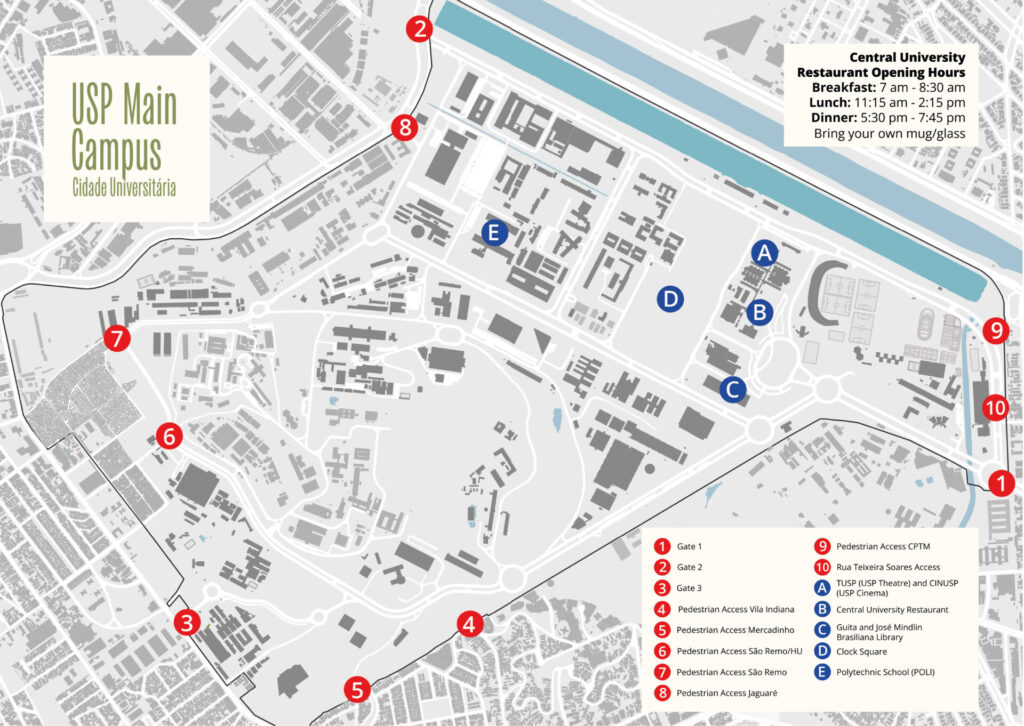
Venues and directions
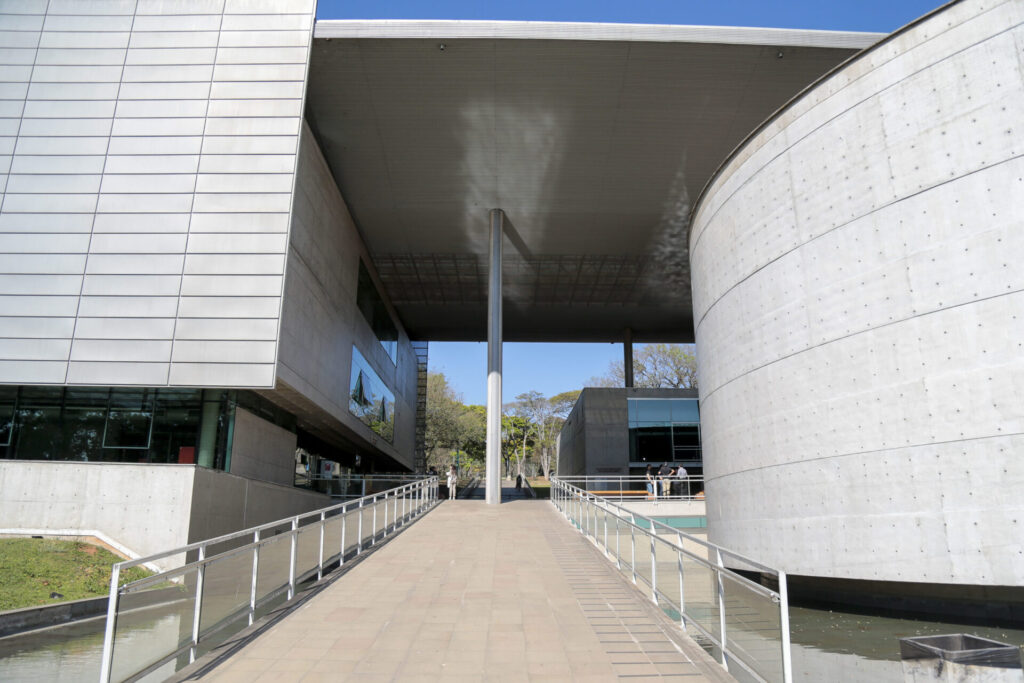
István Jancsó Auditorium at Espaço Brasiliana
Rua da Biblioteca, 21, Cidade Universitária
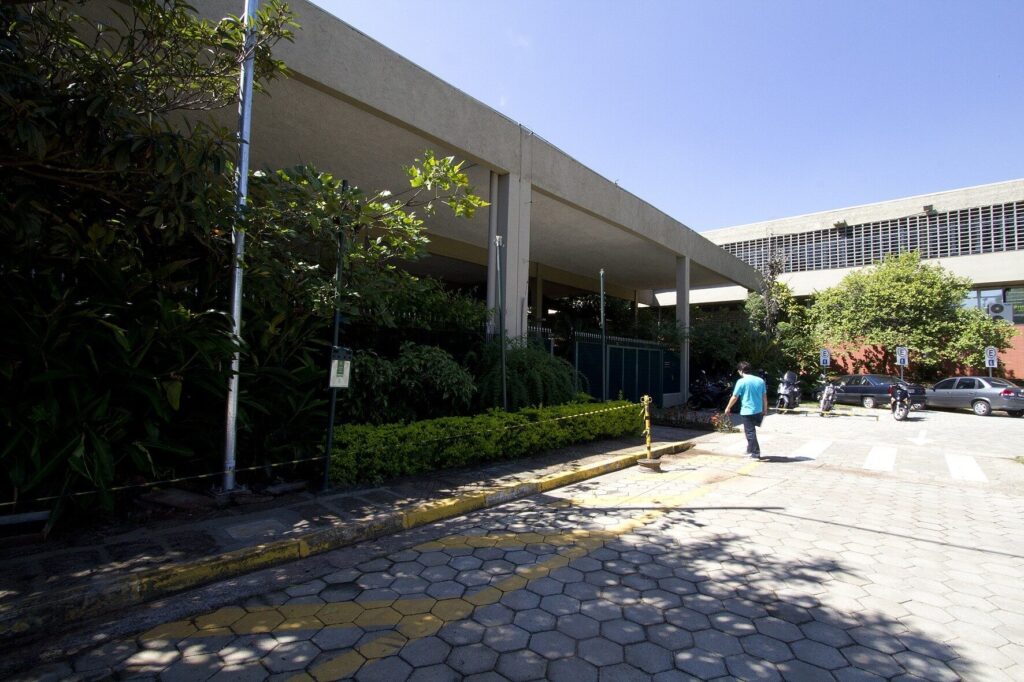
Polytechnic School (POLI)
Avenida Professor Luciano Gualberto, Travessa 3, 158, Anfiteatro da Engenharia Elétrica, Cidade Universitária
@poliusp
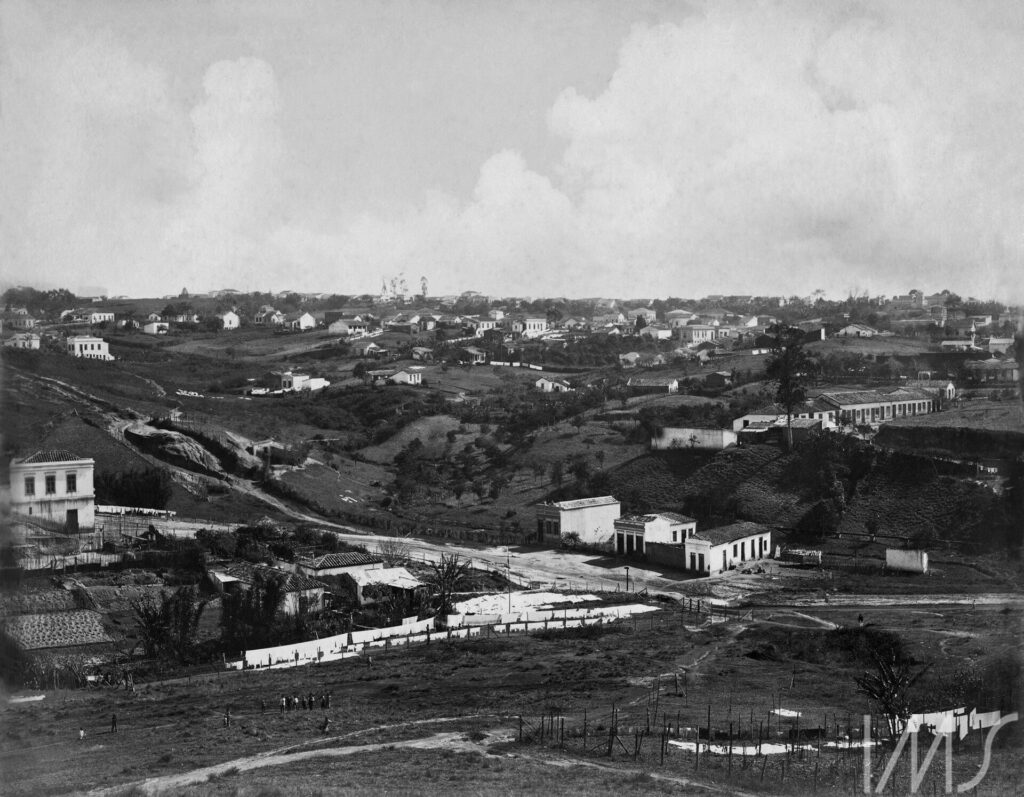
Quilombo Saracura
Rua Dr. Lourenço Granato, Rua Manoel Dutra, intersection with Praça 14 Bis (Trianon-Masp Station, 1 km away, 14-minute walk or 8-minute drive)
@estacaosaracuravaivai
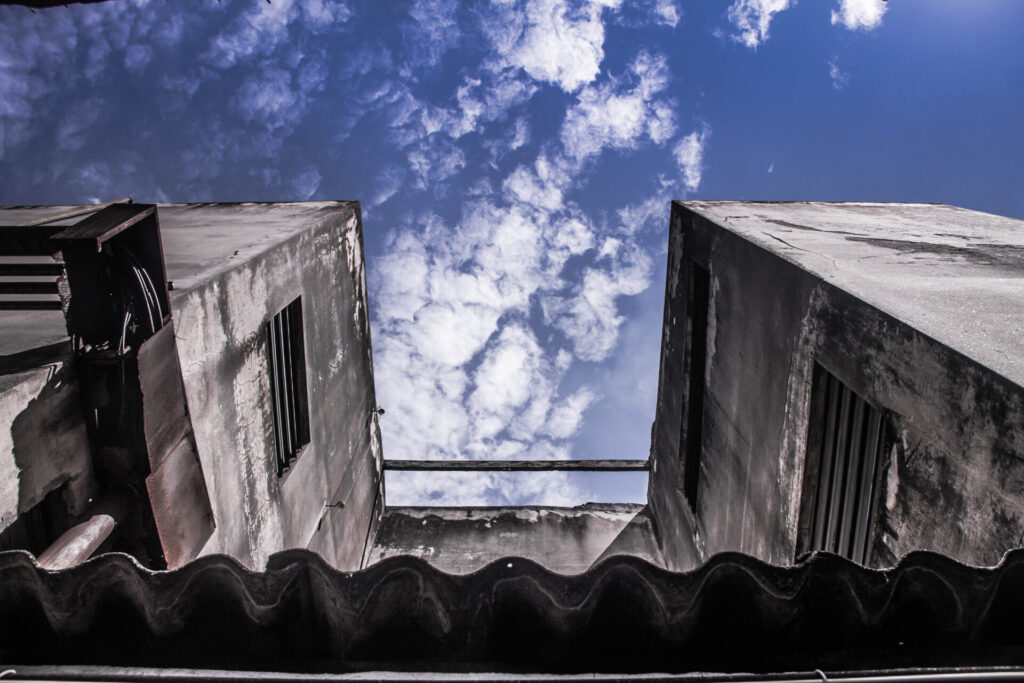
DOI CODI Former Detention Center, Future Memorial
Rua Tutóia, 921, Vila Mariana (Ana Rosa Station, 1.9 km away, 21-minute walk or 8-minute drive)
@arqueodoicodisp
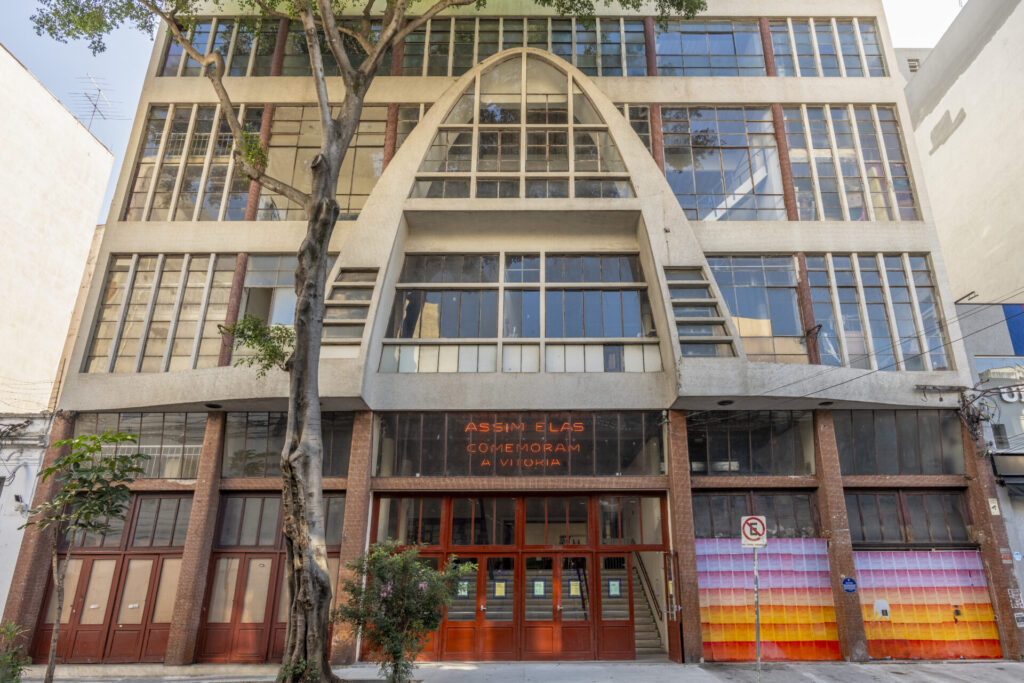
Casa do Povo
Rua Três Rios, 252, 1st floor, Bom Retiro (Tiradentes Station, 450 meters away, 6-minute walk or 7-minute drive)
@_casadopovo

Resistance Memorial
Largo General Osório, 66, Santa Ifigênia (Luz Station, 500 meters away, 6-minute walk or 8-minute drive)
@memorialdaresistenciasp
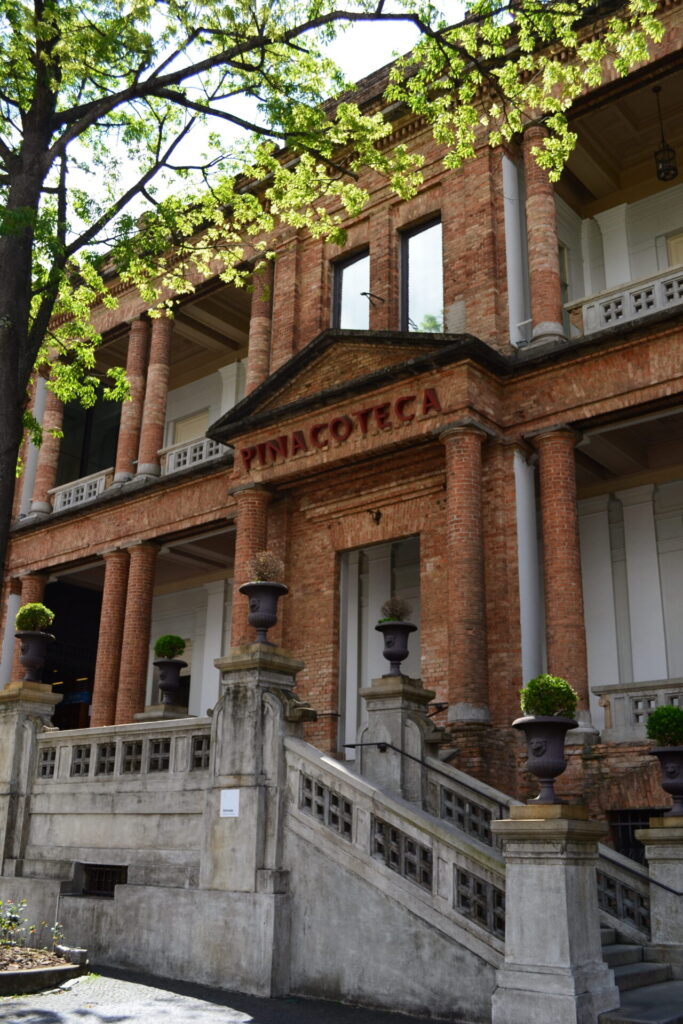
Pinacoteca de São Paulo
Praça da Luz, 2, Luz (Luz Station, 130 meters away, 3-minute walk)
@pinacotecasp
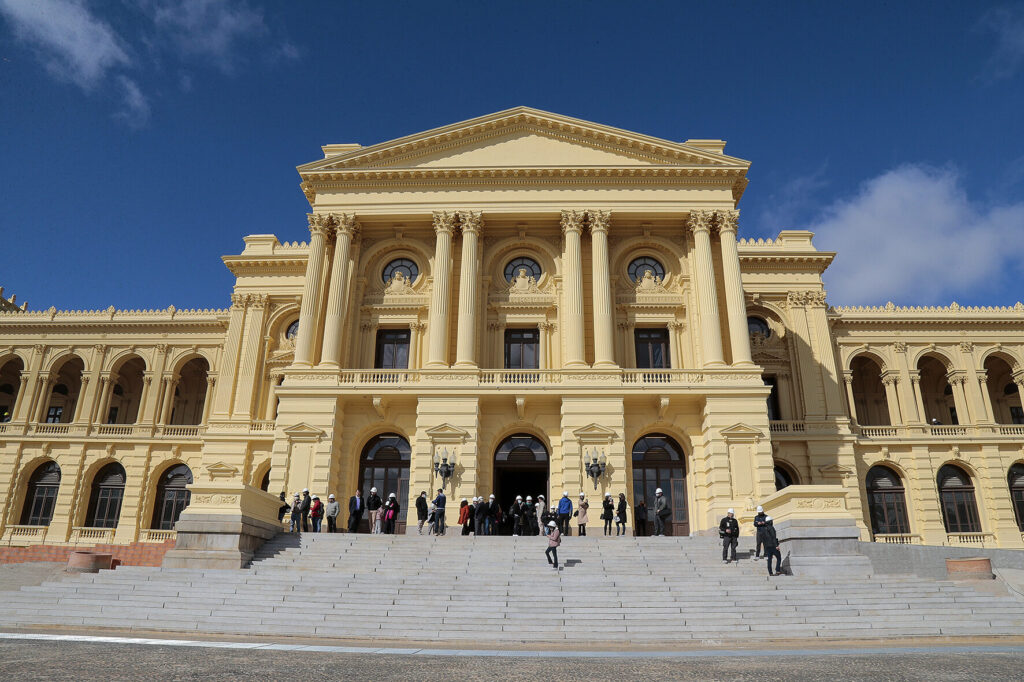
Paulista Museum (Ipiranga Museum)
Parque da Independência, Ipiranga (Alto do Ipiranga Station, 2.3 km away, 32-minute walk or 9-minute drive)
@museudoipiranga
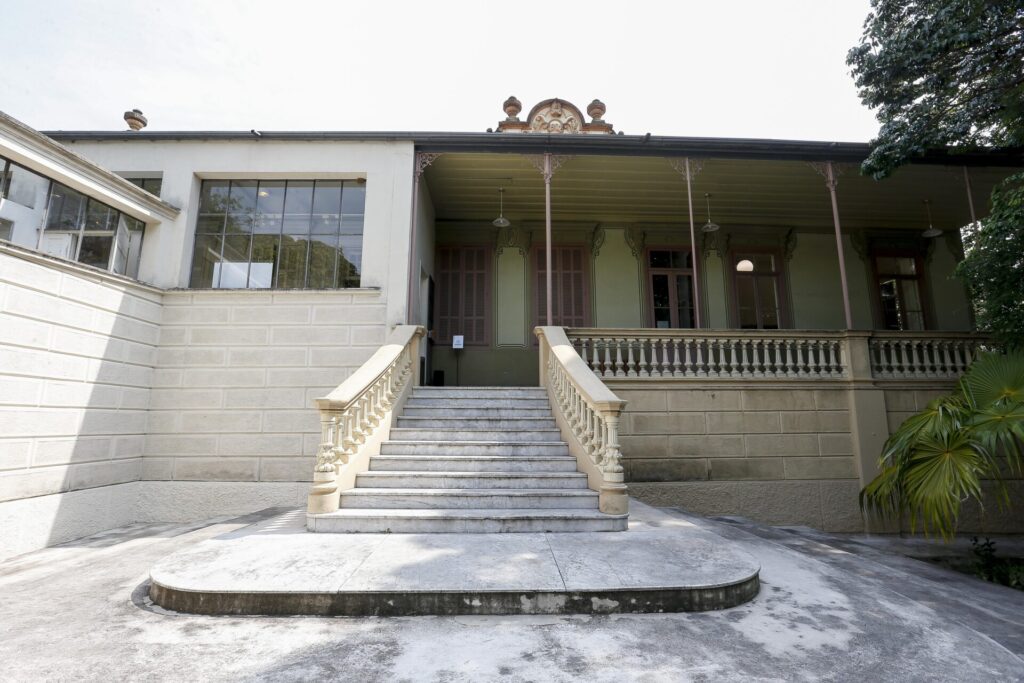
House of Dona Yayá
Rua Major Diogo, 353, Bela Vista (Liberdade Station, 1.1 km away, 18-minute walk or 10-minute drive)
@cpcusp
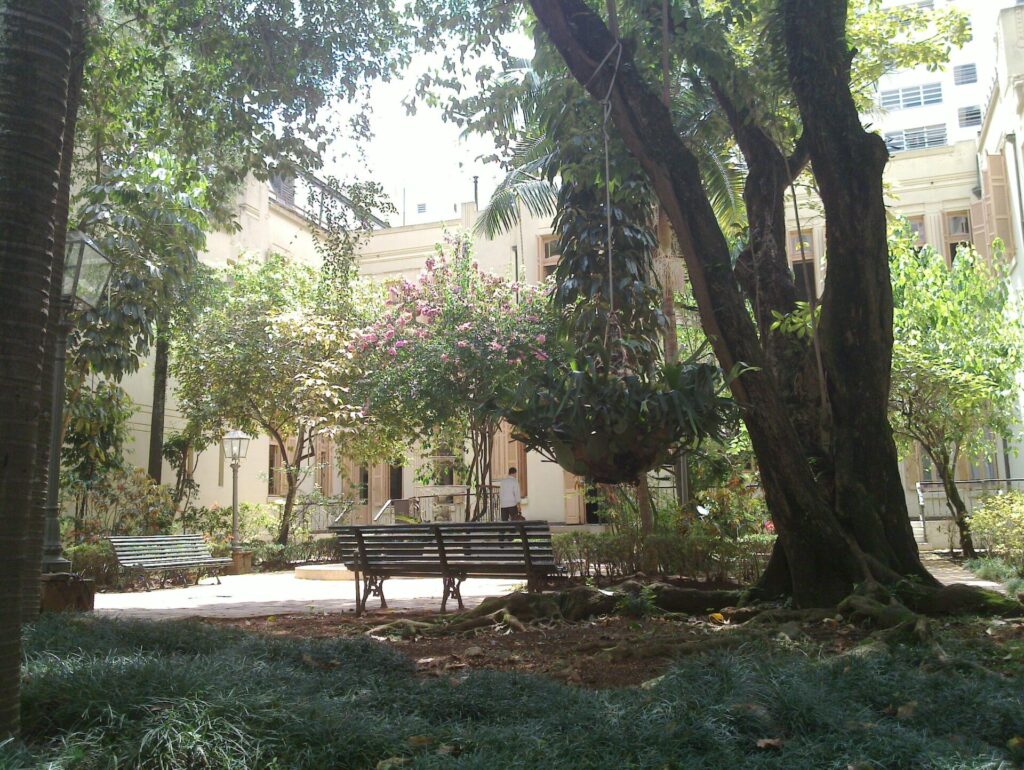
FAU Maranhão (Architecture School)
Rua Maranhão, 88, Higienópolis (Higienópolis-Mackenzie Station, 400 meters or 5 -minute walk)
@fauusp
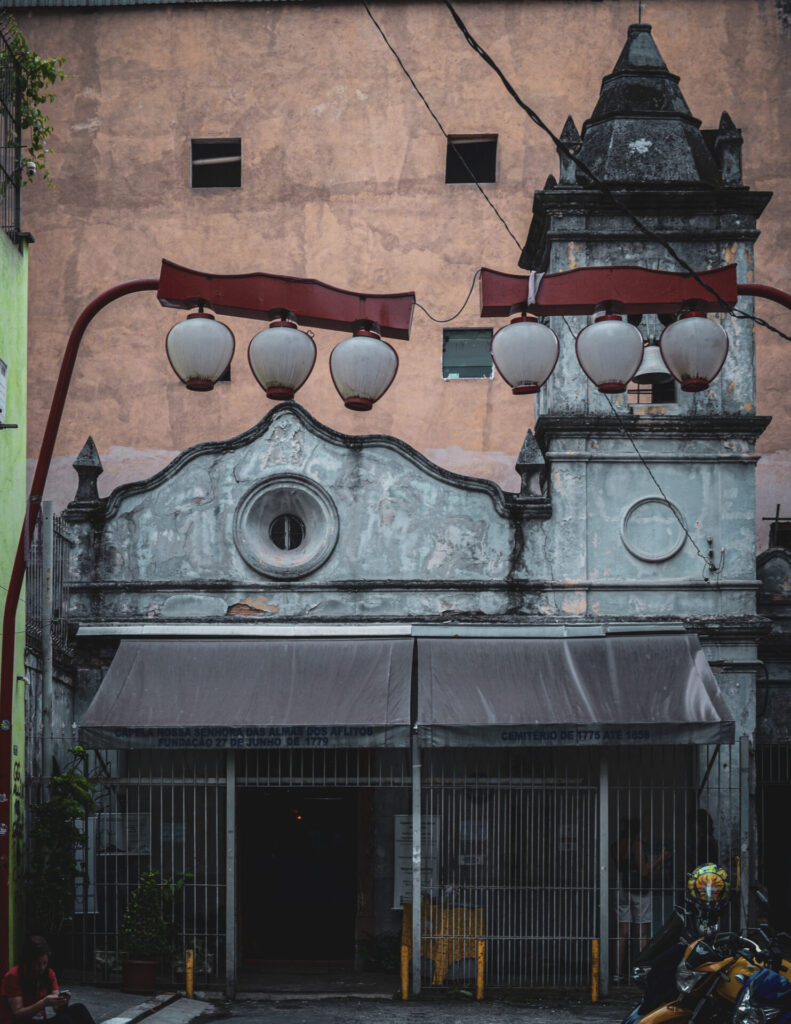
Memorial dos Aflitos
Rua dos Aflitos, 70, Liberdade (Liberdade Station, 160 meters away, 2-minute walk)
@museudosaflitos
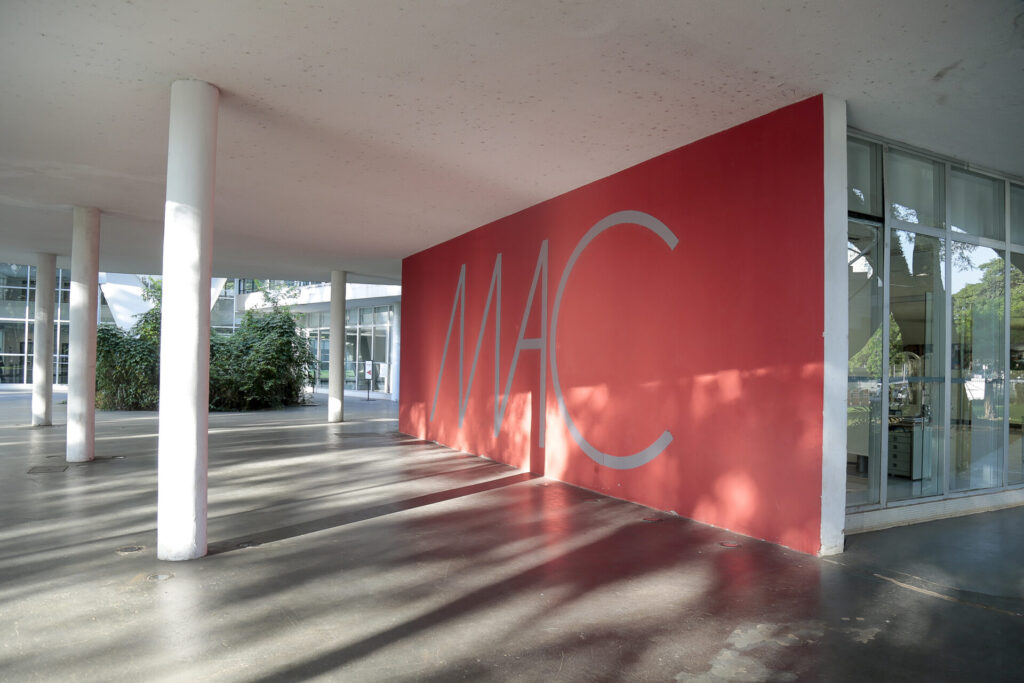
Museum of Contemporary Art
Avenida Pedro Álvares Cabral, 1301, Vila Mariana (Ana Rosa station, 2.4 km away, 30-minute walk or 8-minute drive)
@mac_usp
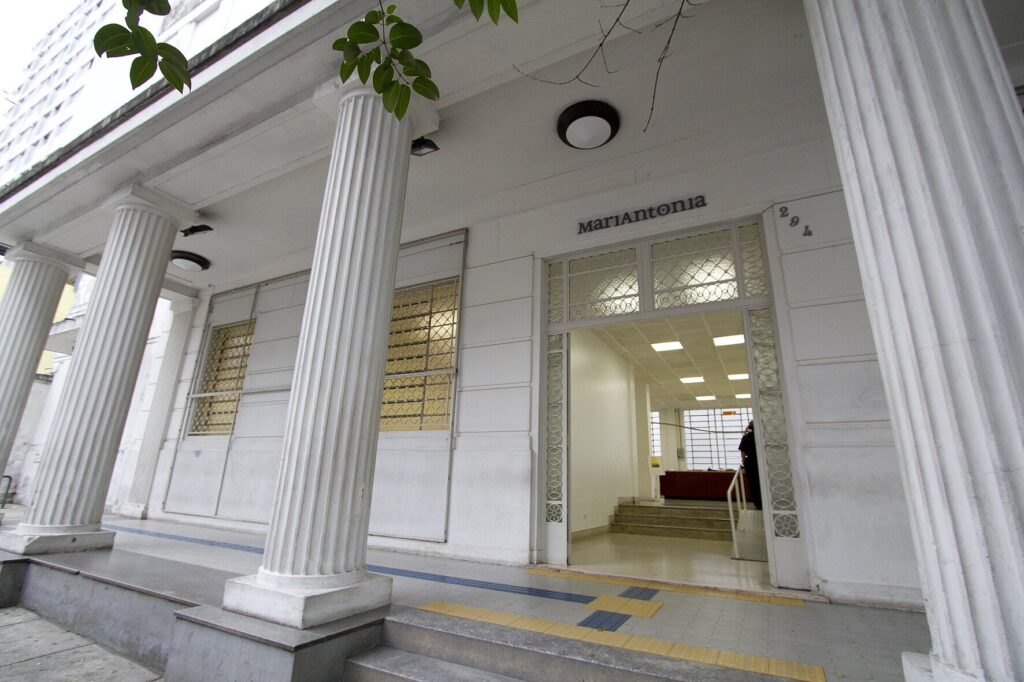
Centro Maria Antonia
Rua Maria Antônia, 258/294, Vila Buarque (Higienópolis-Mackenzie Station, 600 meters away and 8-minute walk)
@mariantoniausp
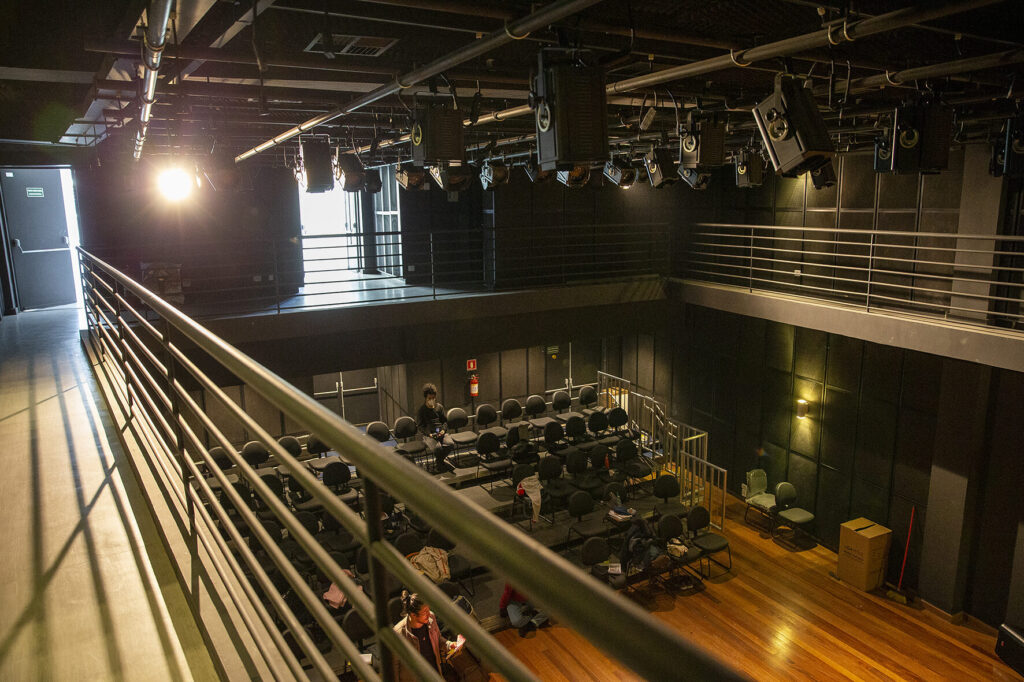
TUSP (USP Theatre) and CINUSP (USP Cinema)
Rua do Anfiteatro, 109, Cidade Universitária
@tusp.teatrodausp
@cinusp_
Faculty

Aline Montenegro Magalhães (Museu Paulista)
Professor at the Museu Paulista of USP after working for over 20 years as a historian at the Museu Histórico Nacional (IBRAM). Bachelor’s and licentiate degrees in History from UFRJ (2000), master’s and doctorate in Social History from UFRJ (2004 and 2009). She was a CNPq Senior Postdoctoral Fellow between 2018 and 2020, developing the research project “Blacks in the Museu Histórico Nacional: for a decolonized collection. 1922-2018”. She has experience in the area of History, with an emphasis on Writing History in museums and heritage, working mainly on the following themes: collecting, Museu Histórico Nacional and material heritage of the African Brazil.

Ana Claudia Veiga de Castro (FAUD-USP/Centro Maria Antônia)
She is a professor at the School of Architecture and Urbanism of the University of São Paulo (FAU USP), where she graduated (1997), completed her master’s degree (2005) and doctorate (2013), with a research internship at Columbia University (2011) and co-tutorship at the Universidad Nacional de Quilmes/ Argentina. She is a member of lab_outros (Laboratory for Other Urbanisms/ USP), is vice-leader of the Research Group Culture, Architecture and City in Latin America (CNPq/ USP) and a member of the Group Archives, sources and narratives: between city, architecture and design (CNPq/ USP) and of the Group Chronology of Urban Thought. He develops the research projects Cities and ideas: Latin America as a problem for the history of the city and urbanism, 1940-1970 (USP/Fapesp) and Experiencing the metropolis: inequality, rivalries and sociability in the city of São Paulo (USP/IRD France).
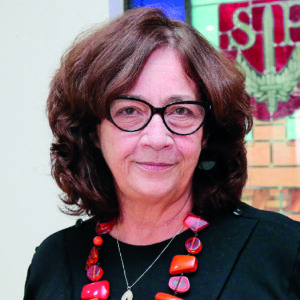
Ana Lúcia Duarte Lanna (FAUD-USP / PRIP-USP)
Provost for Inclusion and Belonging at the University of São Paulo, coordinator of ESPCA. Social Scientist from UFMG. Master in History from the State University of Campinas. PhD in Social History from USP. Post-doctorate from the University of Paris IV-Sorbonne. She is a full professor at the School of Architecture at USP. She has experience in the area of History, with an emphasis on Brazilian History, working mainly on the following themes: history of cities, cultural heritage, architecture, urban history and social history. She is a CNPq productivity scholarship holder. Among her activities, the following are worth mentioning: Director of the Institute of Brazilian Studies at USP (2006/2010); Head of the Department of History of Architecture at FAUUSP. Coordinator of the NAPSP Research Support Center São Paulo: city, space, memory (until 2016), president of the Council for the Defense of Historical, Archaeological, Artistic and Tourist Heritage of the State of São Paulo (2013/2015) and director of FAUUSP (2018/2022).

Ana Paula Brito (REBRAPESC e FAUD/USP/FAPESP)
Daughter of Dona Vanda, mother of Ana Clara, from Paraíba. Postdoctoral fellow at FAU/USP with a FAPESP scholarship and coordinator of REBRAPESC. Historian from UFPB and Museologist from UFRGS. Master in Social Memory and Cultural Heritage from UFPel with an internship at the University of Buenos Aires. Master in Museology from UFRGS. PhD in History from PUC/SP with an internship at the University of Barcelona. Works with historical research and cultural production, especially in processes of memorialization, patrimonialization and musealization of memories of violence based on the assumptions of the Museology of Traumatic Memories. Has professional internships in museums about dictatorships in Argentina, Brazil and Chile. In Brazilian cultural production, her work in coordinating research and consulting at Sites of Memory and Consciousness in Paraíba and São Paulo stands out. In 2018, she founded the Brazilian Network of Researchers of Memory and Consciousness Sites-REBRAPESC and has coordinated it ever since. She is the creator and presenter of the podcast “Memoria para que” (Memoria para que), the result of her participation as a professor at the Calas Center at UFMG in 2023.

Bianca Tavolari (FGV-SP/CEBRAP)
Professor of Law at FGV Direito São Paulo and researcher at the Brazilian Center for Analysis and Planning – CEBRAP. She is the principal investigator at the Maria Sibylla Merian Center – Mecila, an institution of which she was also the Brazilian director. She coordinates the section “Cities and Things” in the magazine Quatro Cinco Um. She is a member of the advisory boards of the Parliamentary Front for Urban Centers, the Brazilian Institute of Architects (IAB-SP) and the Pólis Institute. She was a professor at Insper between 2018 and 2023, where she coordinated the Urban Issues Center and co-coordinated the Master Plan Observatory. She was a professor of the postgraduate course in Graphic Design and City at Escola da Cidade. She was a visiting professor at the University of St. Gallen, Switzerland. She holds a PhD, master’s and a degree in Law from the Faculty of Law of the University of São Paulo. She also holds a degree in Philosophy from the Faculty of Philosophy, Letters and Human Sciences of the University of São Paulo.

Deborah Neves (UNIFESP)
Coordinator of the Interinstitutional Working Group Memorial Doi-Codi since 2018. Member of ICOM-Brazil. Postdoctoral researcher at Unifesp and Fapesp scholarship holder. PhD in History from Unicamp (2020), Master in Social History from the University of São Paulo (2014), specialist in Research in Recent History (Caicyt-Argentina, 2012), specialist in Cultural Heritage Management from UNIFAI (2011), Bachelor and Licentiate in History from the University of São Paulo (2008). She worked as a historian at the Historical Heritage Preservation Unit of the State Secretariat of Culture of São Paulo, linked to Condephaat (2010-2023).

Fernanda Mendonça Pitta (MAC-USP)
Professor of the Research Division in Art, Theory and Criticism of the Museum of Contemporary Art of the University of São Paulo. She is the coordinator of the Brazil team of the research project Decay without mourning, future thinking heritage practices (Riksbankens Jubileumsfond GI21-0001, Pinacoteca and MAC-USP). Member of the Brazilian Committee for the History of Art (CBHA). She works in the area of art history, with an emphasis on the historiography of art in Brazil.
An art historian, she was a senior curator at the Pinacoteca de São Paulo between 2014 and 2022. Among other projects, she curated the exhibitions Trabalho de artista: imagem e autoimagem (1826-1929), Ninguém terquei Acreditado: Alvim Côrrea e 10 artistas contemporâneos and Eleonore Koch: espaço aberta. She worked as curatorial coordinator for Véxoa: nós sabes, curated by Naine Terena, and as consultant for the exhibition Raio-que-o-parta: fictions of the modern in Brazil.

Flávia Brito do Nascimento (FAUD-USP / CPC-USP)
Full Professor at the School of Architecture and Urbanism of the University of São Paulo, FAUUSP. Director of the Center for Cultural Preservation of USP – Casa de Dona Yayá and Alternate Advisor on the Advisory Board of Iphan. He holds a degree in Historian from the Fluminense Federal University (UFF, 1995), Architect and Urban Planner from the Federal University of Rio de Janeiro (UFRJ, 2000), and holds a Master’s degree (2004) and a PhD in Architecture and Urbanism from USP (2011). She completed her postdoctoral studies at the Université Paris 1 Panthéon-Sorbonne (2019-2020). She was an architect at Iphan between 2006 and 2013, Director of Research at Inepac – State Institute of Cultural Heritage of Rio de Janeiro, and advisor to Condephaat and Conpresp. She has developed several technical studies in the area of heritage, among which the Cultural Landscape of the Ribeira Valley and the listing of the Historic Center of Iguape and the assets of Japanese immigration in Registro stand out. She is a CNPq Productivity Scholar, currently developing research on women’s house museums.

Gabi Dolff-Bonekämper (TU Berlim)
Art historian, professor of monument preservation and urban cultural heritage at the TU Berlin from 2002 to 2021. From 1988 to 2002 monument conservator in Berlin, actively and contentiously involved in debates on the assessment and preservation of post-war modernist monuments and buildings in East and West Berlin. From 2001/02 fellow at the Getty Conservation Institute in Los Angeles. From 2000 to 2011 member of the expert group on the common European cultural heritage at the Council of Europe. Spokesperson 2016-2021, since 2021 continued to be a member of the DFG Research Training Group “Identity and Heritage”. Main areas of work: value of monuments and cultural heritage theory, historical policy, memory research, architecture and the history of urban development in post-war modernity in Europe.

Joana Mello
Professor of in the Department of History of Architecture and Project Aesthetics, in the discipline group History and Theories of Architecture and in the Postgraduate Program in Architecture and Urbanism at the School of Architecture and Urbanism of the University of São Paulo – FAUUSP. He holds a degree in Architecture and Urbanism from FAUUSP (1997), a master’s degree in Architecture and Urbanism from the Department of Architecture and Urbanism of the School of Engineering of São Carlos of the University of São Paulo (2005), a PhD in History and Foundations of Architecture and Urbanism from FAUUSP (2010) and a post-doctorate from the Institute of Philosophy and Human Sciences of Unicamp (2015). He leads the research group Archives, sources and narratives: between city, architecture and design (CNPq). CNPq Research Productivity Scholarship / PQ -2 (2020-2023) with experience in the area of History and Foundations of modern Architecture and Urbanism.

Leslé Honoré (Urban Gateways, Chicago)
Blaxican poet, activist, and author of Fist & Fire, a collection of powerful, unflinching poems that confront social justice issues through the lens of real human lives and voices, and delve into the flames of love within the context of a relationship. In her poetry and life, she works to empower young people to find their voices through the arts and inspire people to speak up in the gaps that social, economic, and racial inequities create. She further honed her craft at Xavier University of Louisiana, where she studied English Literature and Spanish. She was a featured speaker at the inaugural Tedx Grand Boulevard in 2020. She has spoken and read from her work at Obama Foundation conventions and events, the 2020 Watermark Innovation Conference, the Elevated Chicago Symposium, the City of Chicago’s 19th Amendment Celebration, Latino Progresando’s 2020 MEXtalks, the University of Illinois Chicago’s Speaking Anarcha’s Name, the Mercantile Library (Cincinnati), and events such as the Silver Room Block Party and National Period Day. She has been featured in The New York Times, the Chicago Tribune, WBEZ (NPR), The Kendall Moore Show/WVON, and every major Chicago TV news channel.

Leo L. Hwang
Associate Dean for Inclusive Excellence and Assistant Dean of Academics in the College of Natural Sciences at the University of Massachusetts, Amherst. He researches participatory action and asset-based community development as a model for improving how we engage in diversity, equity, and inclusion work. He earned his Ph.D. from the University of Massachusetts in Geosciences with a focus on using participatory action research to better understand the diverse community economies of artists and craftspeople in Franklin County, an MFA in fiction writing from the University of Massachusetts at Amherst, and his BA in English and Fine Arts from the University of the South.

Mandy Sanger (District Six Museum Cape Town)
Head of Education at the District Six Museum, which represents one of the many urban sites of apartheid forced removals. The Museum is located in Cape Town, South Africa, a country that openly acknowledges its racially segregated past, where colonial and apartheid relations are still embedded in society. The Museum is a living space, dedicated to working with memory to support restitution. Its work involves creating anti-racism programs with a practical component to “reimagine the city” by rethinking public spaces through a humanizing pedagogy.
Paulo Tavares (UnB)
Architect and Urban Planner from the State University of Campinas (2005), master’s degree in Research Architecture from Goldsmiths College – University of London (2008) and PhD in Research in Architecture from Goldsmiths College – University of London (2015). He has a post-doctorate from FAU-USP (2017) and Goldsmiths (2019). He is the author of the books Memória da Terra (2020), Des-Habitat (2019) and Forest Law (2014). He has experience in the areas of architecture and urbanism, visual and spatial cultures, human rights, media and ecology.

Renato Cymbalista (FAUD-USP/PRIP-USP)
Architect and Urban Planner from the School of Architecture and Urban Planner of the University of São Paulo (1996), master’s degree in Urban Environmental Structures from FAU-USP (2001) and PhD in Urban Environmental Structures from FAU-USP (2006). Associate Professor at the Department of History of Architecture and Project Aesthetics at FAU-USP. President of the Pólis Institute (since 2012). Coordinator of the research group “Places of Memory and Consciousness” (USP-CNPq). Founder of the Association for Community Property, manager of the FICA and FUA funds. Director of Human Rights and Policies of Reparation, Memory and Justice at the Office of the Provost for Inclusion and Belonging at USP (since 2022).
Deadlines
Until January 27th 2025 – period of applications
February 20th 2025 – publication of selected applicants
February 28th 2025 – deadline for confirmation of interest and sending the necessary documents for flight reservation and health insurance
June 1st 2025 – sending of posters for discussion in the School
July 1st-11th 2025 – period of the School
March 2026 – publication of the book
Contact: espca.prip@usp.br
